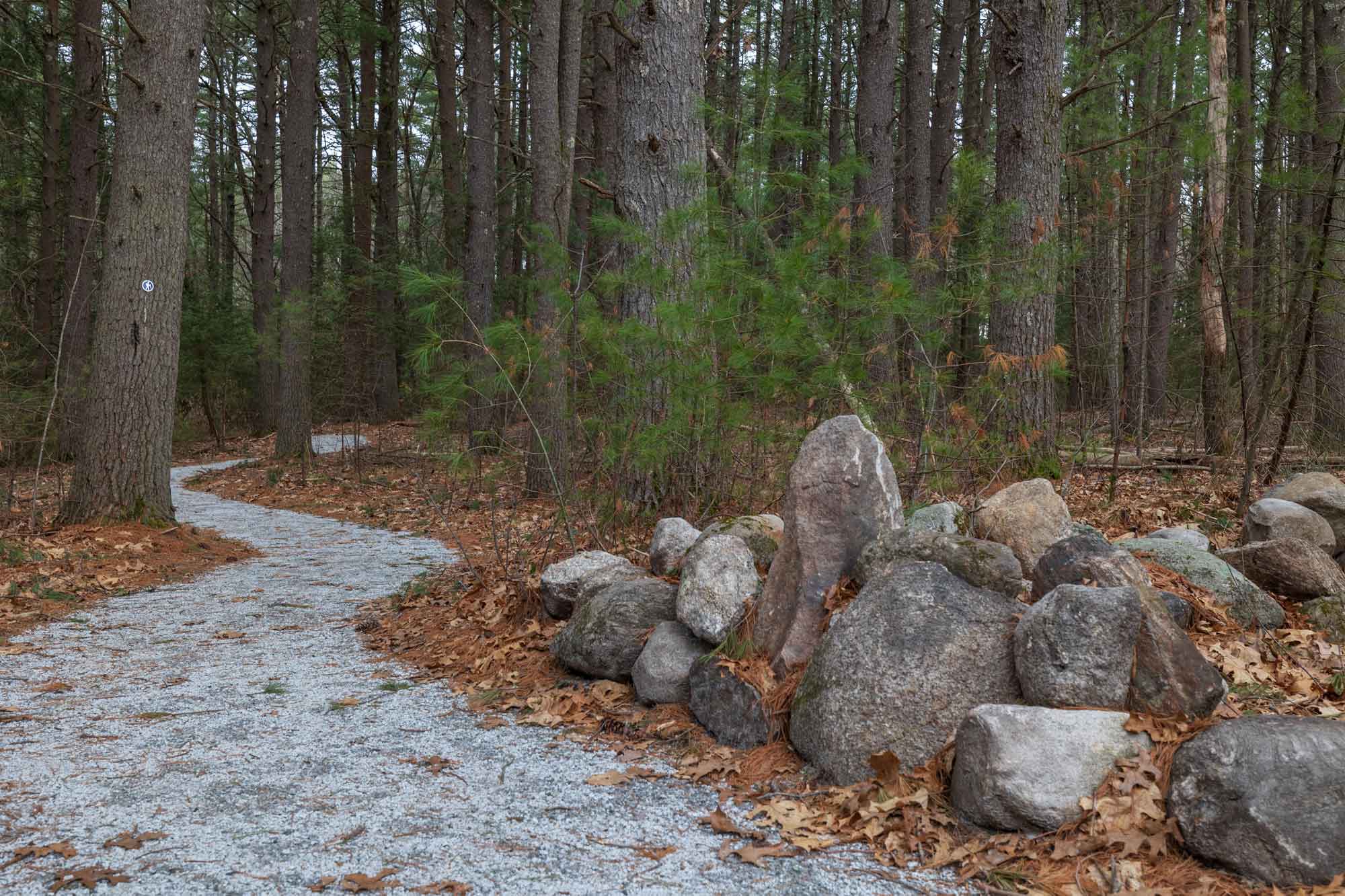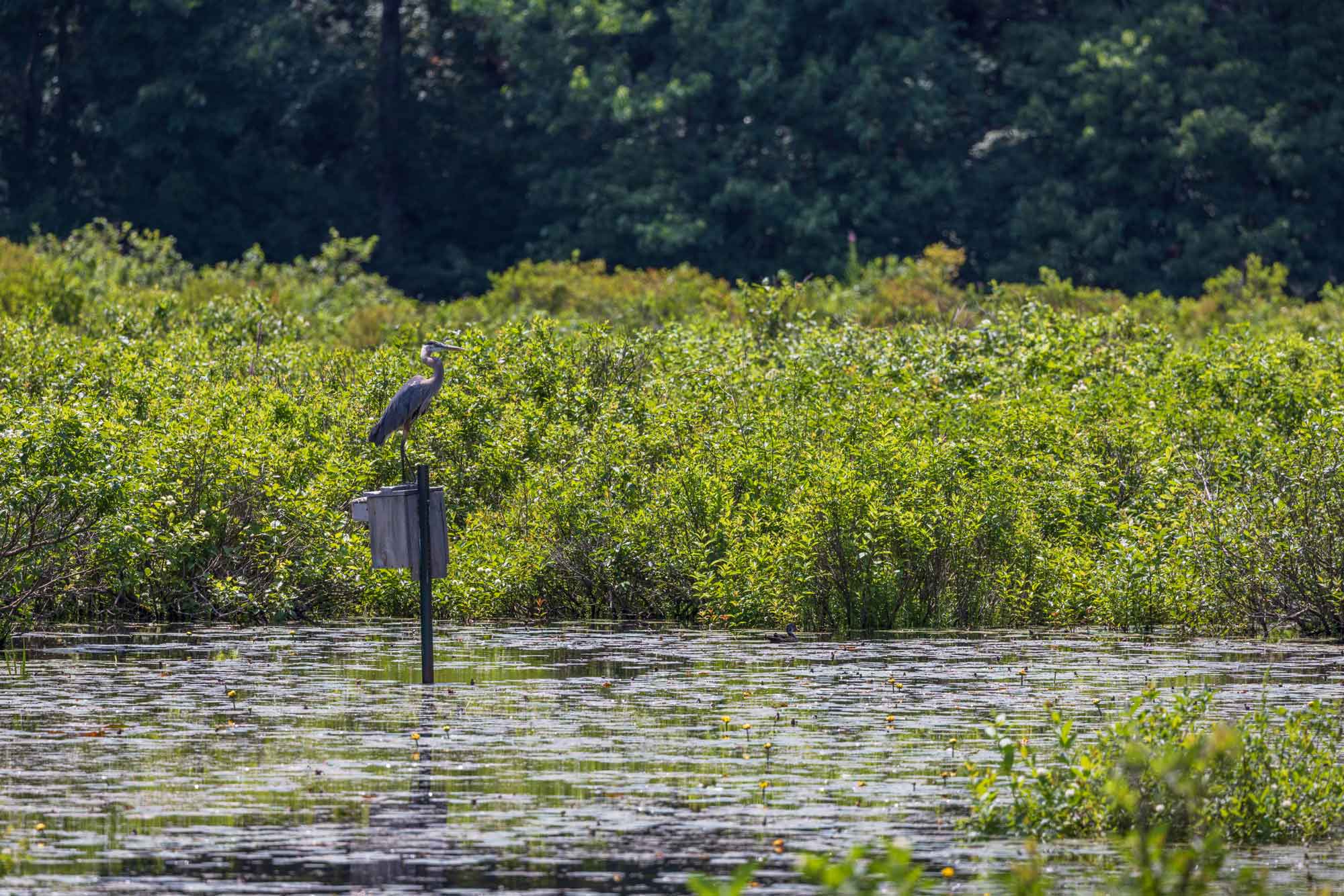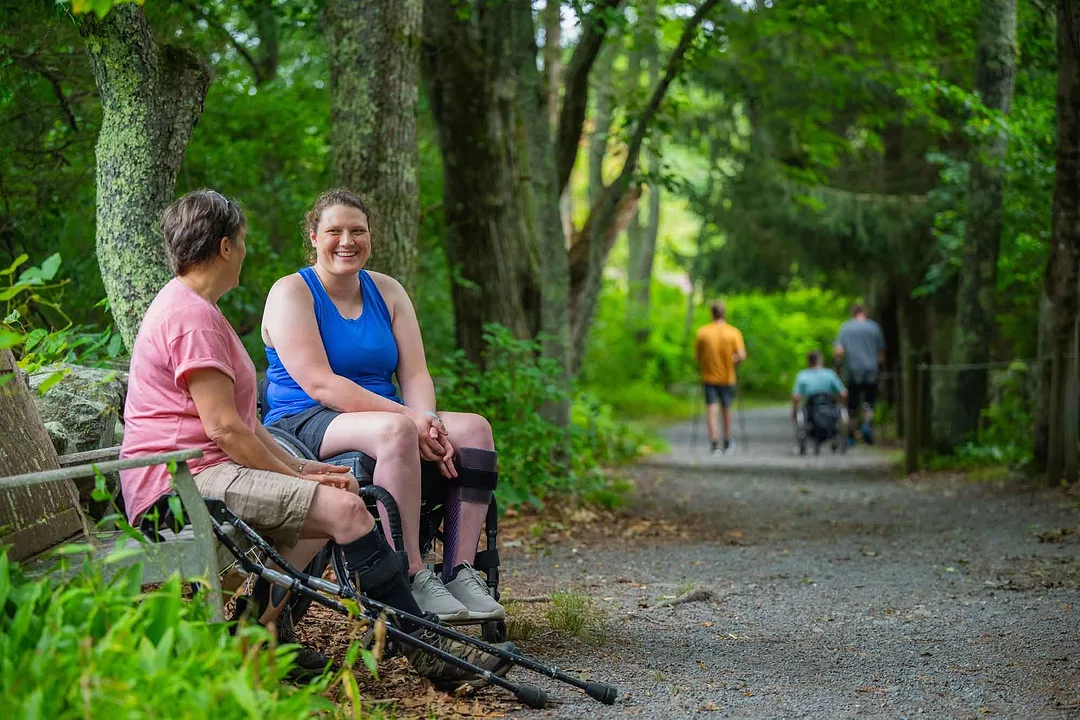We take for granted that nature—and the physical, mental, and emotional health benefits that it provides—should be available to everyone. But for people who have mobility challenges, use wheelchairs, or are pushing heavy strollers, nature trails over rough terrain can be anything but a walk in the park.
As the largest conservation organization in New England, Mass Audubon has spent the last decade playing a leading role in putting nature within reach of everyone at their wildlife sanctuaries across the state. Universally designed, accessible All Persons Trails pave the way for people of all abilities to experience the wonders of nature.
Mass Audubon’s seventeenth All Persons Trail opened last fall at Brewster’s Woods Wildlife Sanctuary in Concord. When Brewster’s Woods was donated to Mass Audubon in 2018, the beauty of the sanctuary – 130 acres of woodland, meadows, and marshland along the banks of the Concord River – was immediately apparent. But the original trails that wandered through the property were narrow and rough, with steep, eroded sections that made travel difficult.
Thanks to the work of Appalachian Mountain Club’s professional trail crew and Mass Audubon’s accessibility consultants, the new Fisher Trail features a firm, stable surface of crushed stone and gentle grades across the rolling terrain. As one of the few accessible trails in Concord, this 1.2-mile roundtrip trail provides access to nature experiences and wildlife observation spots that might otherwise be off-limits. The trail winds through each of the main habitats of the sanctuary: forest, field, and wetland. Frequent seating opportunities provide a space to rest, take in your surroundings, and observe the plentiful wildlife.

Stone walls on the Fisher Trail
| ©Mass AudubonExploring the Fisher Trail provides a view of the Concord landscape – fields edged by rock walls and forests leading down to a wide expanse of river – that feels like going back in time, reflecting the unique history of the property. This historic site was formerly part of the country homestead of William Brewster (1851-1919), an early leader in American ornithology and curator at Harvard University’s Museum of Comparative Zoology. In 1891, Brewster purchased October Farm in Concord as a respite from his city life in Cambridge. Here he embarked on extensive fieldwork, taking full advantage of the forest, meadows, and abundant wetlands on the banks of the Concord River.
Brewster’s legacy of conservation was greatly influenced by his time in Concord, a period in which he purposefully chose to put down his rifle (the common means at the time for obtaining bird specimens for study) and to pick up his binoculars. This time also aligned with his role as the first President of Mass Audubon from 1896 to 1913, working with founders Harriet Hemenway and Minna Hall to enact legislation prohibiting the killing of songbirds for ornamental purposes.
Brewster made extensive records of the wildlife that he saw on the property, including many species which are still present today. A highlight of the journey for birders and all nature fans is the impoundment, a marshy area created by Brewster in the early 1900s to provide habitat for migrating waterfowl. Mallards and Great Blue Herons are often seen gliding over the marsh. Native shrubs like pepperbush form thickets along the waterline that are also great hiding spots for small mammals and the occasional beaver. On sunny days, turtles can often be seen basking on logs. Wooden nesting boxes in the impoundment – homes for Wood Ducks – have been monitored for decades along the Concord River and beyond by the U.S. Fish and Wildlife Service.

Great Blue Heron at Brewster’s Woods
| ©Mass AudubonAfter his passing in 1919, Brewster’s land was divided and sold to different owners. His obituary, written by Henry Wetherbee Henshaw for the birders’ journal The Auk, noted how much his Concord estate meant to him. In fact, he worried that “all the interest in his Concord place was destined to lapse when he was through with it.” It also noted that he often “discussed its availability for a duck or game breeding place, or for a bird refuge.” Decades later, Concord residents Nancy and Reinier Beeuwkes saw the opportunity to protect the land forever. Wanting everyone to experience the beauty of Brewster’s landscape, they donated the land to Mass Audubon, protecting the property from residential development and ensuring that Brewster’s dream of conserving the land would be possible more than 100 years after his death.
Today, Brewster’s Woods is a shining example of both the importance of protecting our wild places and the ability of history to shape our current decisions and understanding about land use. What better way to celebrate that legacy than by ensuring that the beauty and enjoyment of nature are available to all.
Brewster’s Woods Wildlife Sanctuary is located off Balls Hill Road in Concord. The trails are open each day from dawn to dusk, and visitors can download a digital map and self-guided tour from the sanctuary website at massaudubon.org/brewsterswoods. The Fisher Trail begins at the parking area and is clearly marked.


